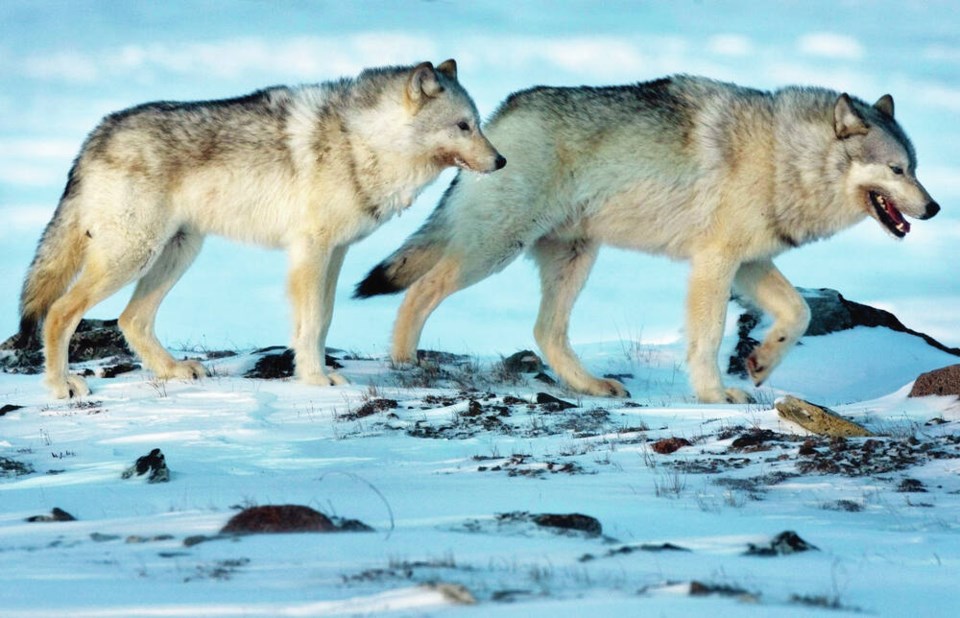All over the world, biodiversity is in decline, and here in British Columbia we stand lose more than most. Forest fires, floods and landslides have threatened and continue to threaten the bounty of wildlife in this province.
And there is still no provincial legislation to address our role as keepers of this great wealth.
sa���ʴ�ý has the highest amount of biodiversity in sa���ʴ�ý, but, along with Alberta, Saskatchewan and Yukon, does not have its own endangered species regulation.
More than 1,800 species are in decline in this province, with almost 300 of those at risk of extinction. Ecojustice, sa���ʴ�ý’s largest environmental law charity, gave sa���ʴ�ý an ‘F’ for its attempts at protecting endangered species. It calls the Wildlife Act ineffective, especially in relation to interests of the forestry and mining sectors.
As far as the province’s so-called “red list” of species is concerned, this is compiled voluntarily by well-meaning people who care about the biodiversity crisis.
It does not come from the government and there is no mandate for its existence. Nor does adding a species to this list mean that species will receive the insufficient coverage of the Wildlife Act.
A species at risk act has the potential to be considered an act of reconciliation by Indigenous peoples, if it is done with their input and guidance. Following a model of free, prior and informed consent, endangered species legislation can offer more legal protection for Indigenous communities in a province of unceded territories.
sa���ʴ�ý has obligations to the United Nations Declaration on the Rights of Indigenous Peoples, and this is an opportunity to recognize traditional knowledge that can inform policy. So informed, such legislation could raise the bar on what can be achieved with regards to mitigating the biodiversity collapse.
Another reason we need to do this now is that Premier John Horgan campaigned on a promise to create a species at risk act. He has reneged on this promise with no explanation as to why.
Not only has Horgan failed to keep his election promise, the sa���ʴ�ý NDP have lobbied the federal government to weaken the federal species at risk act, which itself does not go far enough in protecting endangered or vulnerable species.
If one needs further proof of the government’s true feelings toward wildlife, consider the highly unpopular and recently renewed wolf cull. Despite all evidence to the contrary, Horgan seems to think killing wolves will save caribou.
Wolves are a keystone species. As the health of wolf populations go, so goes the level of health in biodiversity.
Suggestions for a sa���ʴ�ý species at risk act already exist. Specific recommendations have been made around recovery, precaution and feasibility; the implementation of effective protections and stewardship; and ensuring accountability. It would be an evidence-based approach – unlike the wolf cull.
Such a piece of legislation would not be at the expense of industries like forestry and mining, but these industries will have to stop operating at the expense of sa���ʴ�ý’s biodiversity. We simply cannot keep operating these industries the way we have for so long. Nor can we rely on these industries to regulate themselves. Effective environmental regulations will only come from the impetus to protect and restore, not to profit.
None of this is to say that having our own act will solve the biodiversity crisis. Policy is always more complicated than that.
Ecojustice notes that the federal act only goes so far as to how much it can protect. A lot depends on what provinces decide to do individually. Existing provincial legislation is typically designed around hunting, rather than the intrinsic value of biodiversity. This is why we need to up the ante on endangered species legislation.
sa���ʴ�ý is well positioned to lead the way. We have the highest amount of biodiversity in sa���ʴ�ý and have been experiencing more biodiversity decline than any other province. Deforestation on Vancouver Island is happening at three times the rate of the Amazon.
New legislation could make Horgan an environmental hero at a time when the world needs an environmental hero. However, his allegiances appear to be elsewhere and this needs to change.
We are running out of time.



